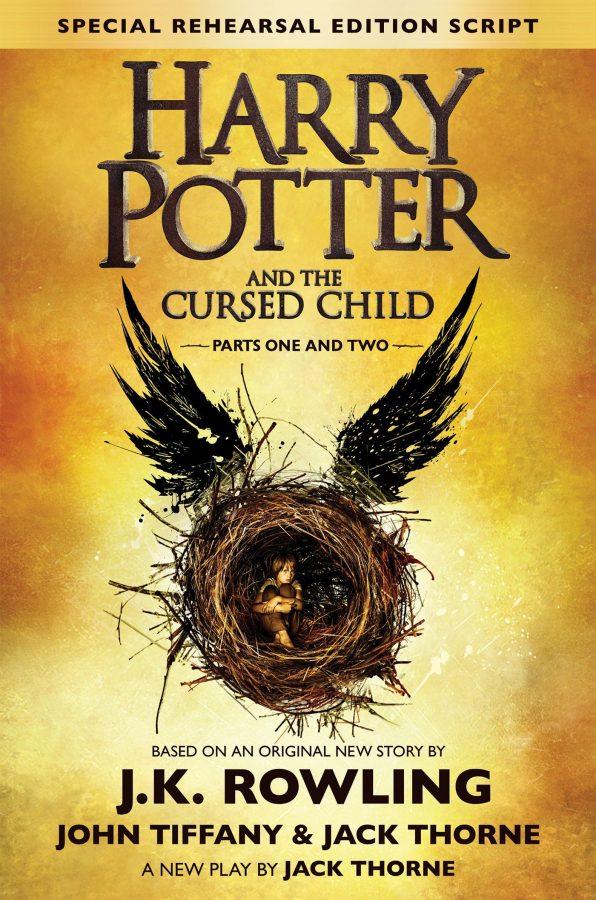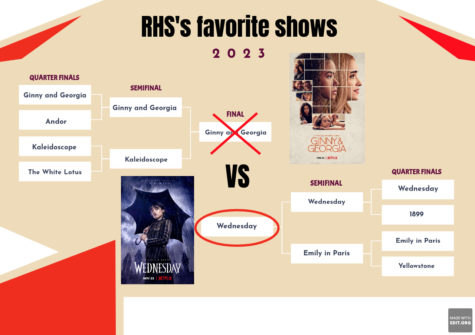“Harry Potter and the Cursed Child” does not live up to the hype
November 2, 2016
Bookstores worldwide were abuzz during the early morning hours of July 31, as self-entitled “Potterheads” were eager to celebrate the now iconic titular character’s birthday, and finally gain a glimpse of Harry’s adult life through the released script of the new London play, “Harry Potter and the Cursed Child”. The highly-anticipated script, which follows Harry and his family 19 years and beyond the last scenes of “Deathly Hallows,” was met with mixed reactions from readers everywhere.
Avid fans of the series have the epilogue of the last book practically memorized; the now-married Ginny Weasley and Harry Potter bid their children goodbye as they board the Hogwarts Express, and console the 11-year-old Albus Potter that no matter what house he is sorted into, he can still achieve success. The play begins directly after these events, and it is soon revealed that Albus was sorted into Slytherin, his father’s rival house. The constant pressure that comes with being a Potter in Slytherin is tiresome for Albus, and this, combined with the fact that one of his new best friends is Scorpius Malfoy, child of Harry’s school enemy Draco, sets the strained dynamic of Albus’ relationship with his father throughout the play. Harry serves as the Head of Magical Law Enforcement during the play and when Albus overhears his father’s refusal to listen to Amos Diggory and use a time turner to revive his son Cedric, he decides to escape the Hogwarts Express in the fall and embark on a quest with Scorpius to attempt to bring him back to life out of spite. This adventure puts the two boys in constant peril and thrusts them into countless alternate realities due to how they change past events, but in the end, the play raises questions about the values of different relationships that leave the show with a lasting and valuable impact.
Although this story was met with many differing opinions, it definitely provides a more realistic ending to the beloved “Harry Potter” series-although it would be nice for a series that involves so many dark events to end with a “happily ever after,” that’s just not realistic. This play provides even more depth to the many beloved characters the original books have introduced to readers all around the world, and although the family tension involved saddens many, it provides for a more true to life story while still ensuring a conclusive and happy, but not overly-so, end to the play. The events of the play also allowed for many cameos from important characters in the series such as Moaning Myrtle, Dumbledore, and Snape, who added either comic relief or more emotional scenes to the story arc. Each reintroduced character served a purpose in the story, as well as making fans of the series happy to see their favorite characters in a new setting, adding to the appeal of the play. The most impressive aspect of this show, however, is the number of special effects, such as spellcasting, flight and even transformations from one character into another, that are included in the action. Although many aspects of the show were somewhat haphazardly shaped, the mind-boggling special effects included in the play add to the appeal of seeing it in London almost more so than anything else.
One of the harshest criticisms of this play is its inconsistent characterization. While Ron has emotional depth and serves as a loyal best friend to Harry in the books, much of this was taken from him in “Cursed Child” and he serves purely as a comic relief in some scenes, which is upsetting. This half-hearted characterization made the play feel like fanfiction at some points, especially due to the fact that JK Rowling only provided the story idea for the show instead of writing it herself. In addition to this, due to how far back in time Scorpius and Albus travel with their time turners, they threatened to change the events surrounding Cedric’s death for good. This added an uncomfortable edge to the play, as I personally preferred the original events in the series and hoped for “Cursed Child” to move the storyline forward as opposed to changing the past.
Although it was exciting to gain an extra glimpse into the lives of Harry and his family after the events of the original books complete with many incredible stage effects, because “Cursed Child” lacked well-thought out characterization and threatened to change past events of the series, it gets a solid ⅘ stars. I definitely recommend that Harry Potter fans read it because of how it adds to the overall storyline, however, and I would completely jump at the chance to see it in London, despite its imperfections!








